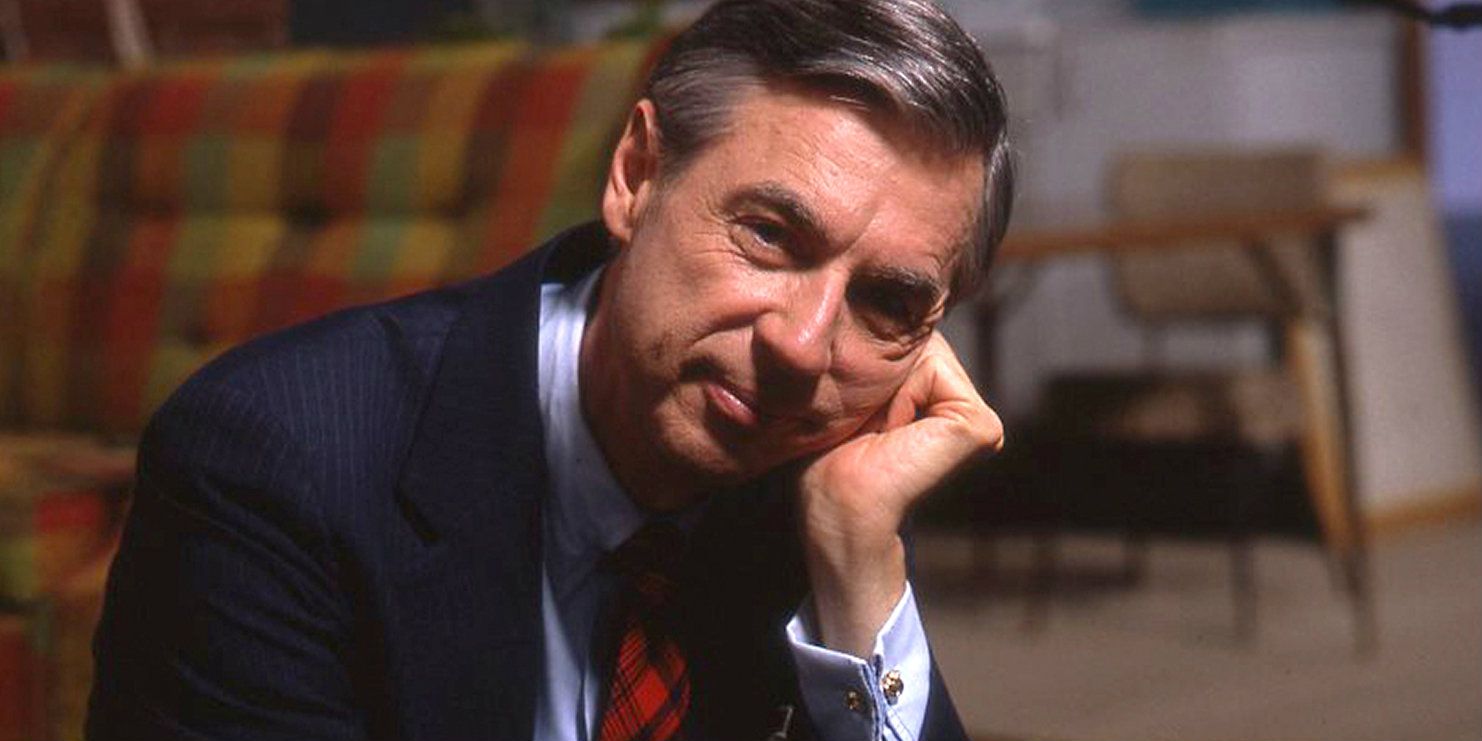Mr. Rogers documentary Won't You Be My Neighbor? hits theaters later this year and the first clip from the film has been released online, along with the initial wave of reviews from its screening at the 2018 Sundance Film Festival over the weekend. Documentarian Morgan Neville, who won an Oscar for his exploration of the lives and experiences of professional backup singers in the 2013 film 20 Feet from Stardom, directed this glimpse into the inner workings of one of the 20th century's most widely trusted and beloved celebrities.
Neville's film isn't so much of a biopic about Fred Rogers himself as it is an examination of the man through the making of his landmark television series. After launching in 1963 on CBS as a unique educational series, Mister Rogers was rebranded Mister Rogers' Neighborhood and began its run as a public television program some three years later. Airing at the same time that such legendary PBS shows as Sesame Street were beginning their own runs, Rogers' show sustained itself through multiple presidencies and was broadcast all the way through to 2001, just two years before Fred himself passed away from stomach cancer.
Related: Watch Sesame Street's Stranger Things Parody Skit
While the first clip from Won't You Be My Neighbor? (courtesy of Focus Features) touches on the "low production values [and] simple set" that made Mister Rogers' Neighborhood an unusual television success story, it also serves to illustrate the tone of the film on the whole. Variety's Amy Nicholson praises the movie for being a "gentle documentary" in her review, while at the same time noting that "it's not a complex portrait" of Mr. Rogers, adding that "it's impossible to make a deep documentary" when the personalities of puppet characters like King Friday XIII and Lady Elaine reveal more about Fred's shortcomings as a human being than most of the people interviewed in the film do.
Won't You Be My Neighbor? does touch on some of the more controversial moments in Mister Rogers' Neighborhood history, including when Fred defined the word "assassination" for his young viewers the day after Robert Kennedy was murdered. It also reveals that while Francois Scarborough Clemmons - a gay black man - was a cast member on the series at the time of the LGBTQI movements of the 1970s and '80s, Fred asked him to stay closeted and avoid going to gay bars, lest it endanger the show and its funding. Revelations like these left Collider's Matt Goldberg wondering in his own review how Mr. Rogers and his reputation would have fared, had he lived long to see the rise of modern internet culture:
The question I couldn’t shake throughout Won’t You Be My Neighbor? is how we would treat Fred Rogers if he was still alive today. Rogers passed away in 2003 before the age of Internet thinkpieces, but he was already facing criticism because his show had dared to tell children they were special and had value. Also considering his criticisms of television, I shudder to think how he would react to YouTube and the Internet, which is like hyper-television with even less supervision. All of this throws Rogers’ entire legacy into question, forcing us to ask if he was a singular figure or someone who legitimately made the world a better place.
Most every review for the film so far reaches a similar positive conclusion, with THR's Dan Fienberg even admitting that "It's hard for me to judge Won't You Be My Neighbor? on artistic grounds because mostly it's a documentary you want to hug." Those who were hoping that the movie would be a hard-hitting deconstruction of Mr. Rogers' public image as a man with a fondness for seeing the best in others, and wearing zip-up cardigans, may end up disappointed that it doesn't go further in that respect. But for everyone else, Won't You Be My Neighbor? should deliver the same warm fuzzy feeling that Mister Rogers' Neighborhood always did, before sending them off to enjoy a snappy new day.
MORE: PBS Announces #MeToo Documentary TV Series
Won't You Be My Neighbor? arrives in select U.S. theaters this year on June 8.
Source: Focus Features

